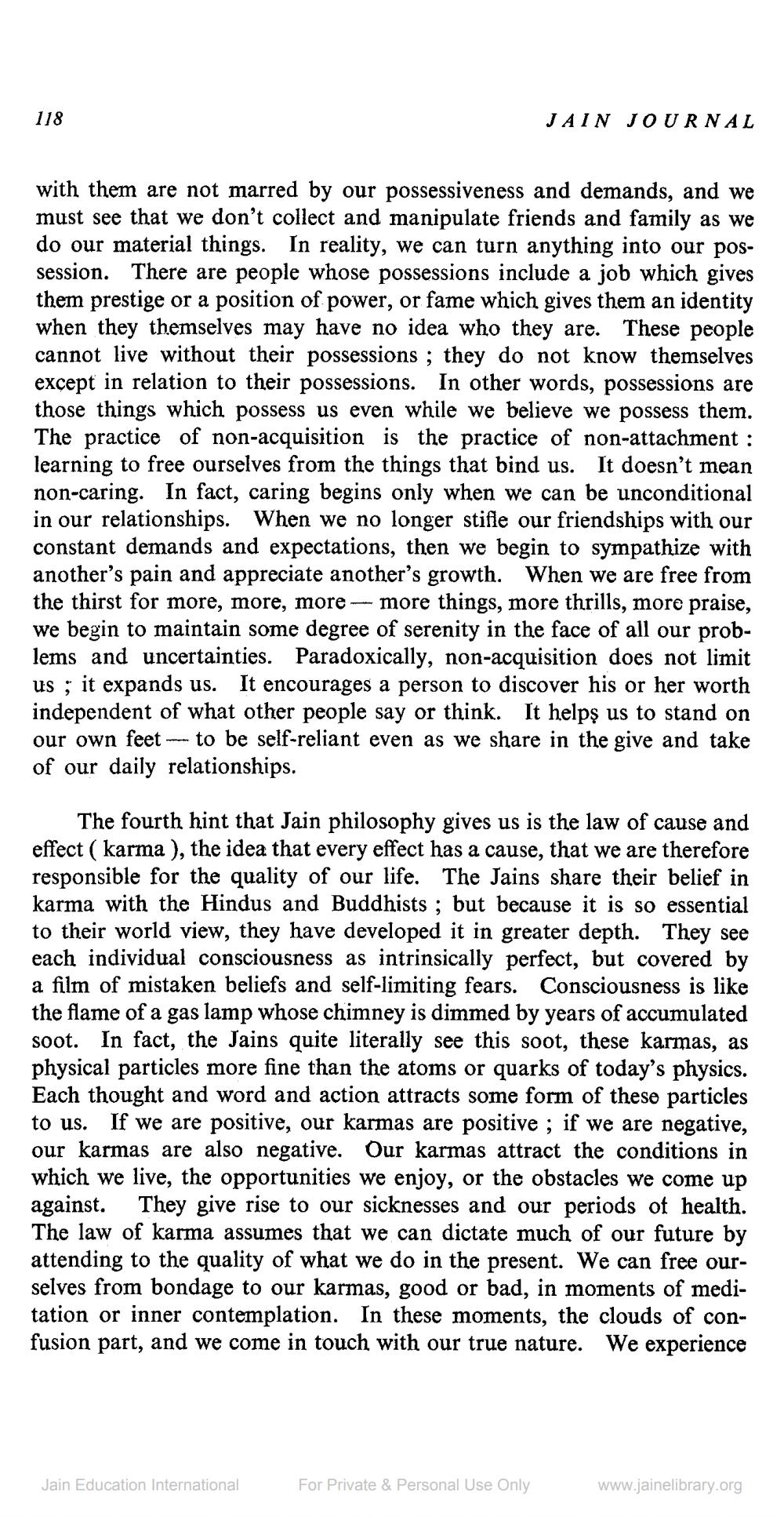Book Title: Jain Journal 1980 04 Author(s): Jain Bhawan Publication Publisher: Jain Bhawan Publication View full book textPage 6
________________ 118 with them are not marred by our possessiveness and demands, and we must see that we don't collect and manipulate friends and family as we do our material things. In reality, we can turn anything into our possession. There are people whose possessions include a job which gives them prestige or a position of power, or fame which gives them an identity when they themselves may have no idea who they are. These people cannot live without their possessions; they do not know themselves except in relation to their possessions. In other words, possessions are those things which possess us even while we believe we possess them. The practice of non-acquisition is the practice of non-attachment: learning to free ourselves from the things that bind us. It doesn't mean non-caring. In fact, caring begins only when we can be unconditional in our relationships. When we no longer stifle our friendships with our constant demands and expectations, then we begin to sympathize with another's pain and appreciate another's growth. When we are free from the thirst for more, more, more- more things, more thrills, more praise, we begin to maintain some degree of serenity in the face of all our problems and uncertainties. Paradoxically, non-acquisition does not limit us; expands us. It encourages a person to discover his or her worth independent of what other people say or think. It helps us to stand on our own feet to be self-reliant even as we share in the give and take of our daily relationships. JAIN JOURNAL The fourth hint that Jain philosophy gives us is the law of cause and effect (karma), the idea that every effect has a cause, that we are therefore responsible for the quality of our life. The Jains share their belief in karma with the Hindus and Buddhists; but because it is so essential to their world view, they have developed it in greater depth. They see each individual consciousness as intrinsically perfect, but covered by a film of mistaken beliefs and self-limiting fears. Consciousness like the flame of a gas lamp whose chimney is dimmed by years of accumulated soot. In fact, the Jains quite literally see this soot, these karmas, as physical particles more fine than the atoms or quarks of today's physics. Each thought and word and action attracts some form of these particles to us. If we are positive, our karmas are positive; if we are negative, our karmas are also negative. Our karmas attract the conditions in which we live, the opportunities we enjoy, or the obstacles we come up against. They give rise to our sicknesses and our periods of health. The law of karma assumes that we can dictate much of our future by attending to the quality of what we do in the present. We can free ourselves from bondage to our karmas, good or bad, in moments of meditation or inner contemplation. In these moments, the clouds of confusion part, and we come in touch with our true nature. We experience Jain Education International For Private & Personal Use Only www.jainelibrary.orgPage Navigation
1 ... 4 5 6 7 8 9 10 11 12 13 14 15 16 17 18 19 20 21 22 23 24 25 26 27 28 29 30 31 32 33 34 35 36 37 38 39 40 41 42 43 44 45 46 47 48 49 50 51 52 53 54 55 56 57 58 59 60 61 62 ... 81
